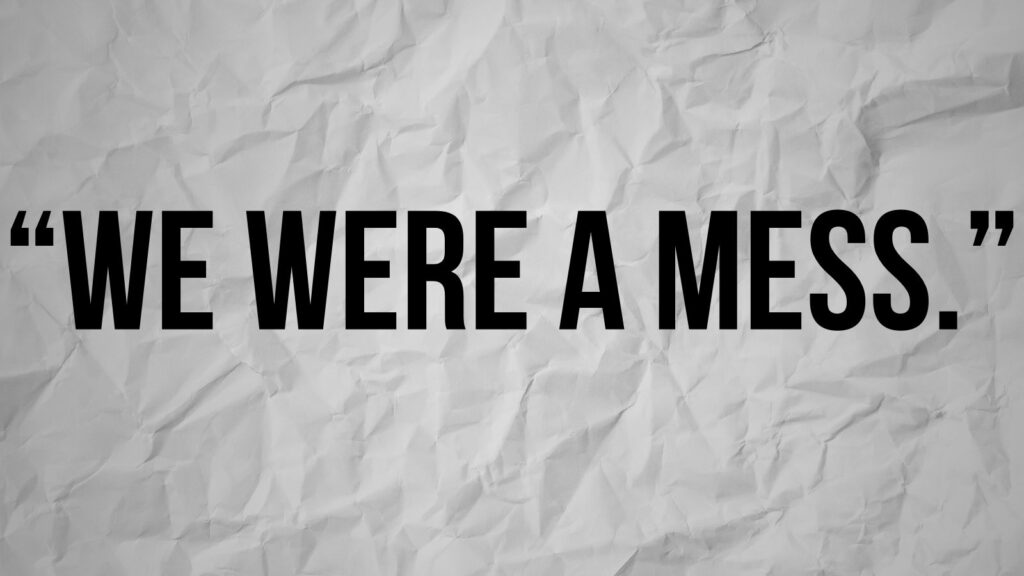Former Megadeth bassist David Ellefson looked back on the legendary thrash metal band’s history, highlighting some of the tough times they’ve had before making some of their most successful records to date.
Although no longer a member of the band, parting ways for good in 2021, Ellefson still remains the longest-running member besides founder and leader Dave Mustaine. And with this in mind, he’s one of best people to recall the tough times that Megadeth went through. Appearing recently on the Disturbing the Priest podcast, Ellefson reflected on this after being asked one of the most common questions in metal music — what were the 1990s like for them?
But despite the rise of Grunge music, which decimated most of the popular metal bands of the 1980s, Megadeth actually had a very successful run in the first half of the decade.
“For Megadeth, the first five years of the ’90s were awesome,” Ellefson explained (transcribed by Killer Guitar Rigs). “That was when we got all this gold and platinum, and life was great. We really had a big upswing coming off of ‘Rust in Peace’, going into ‘Countdown’, even ‘Youthanasia’ and ‘Cryptic [Writings]’, even.”
But there was grunge. As the bassist recalled:
“Then the Seattle thing just completely changed the f***ing course of the earth as a genre, as a group of bands will do.”
However, despite the hardships, Megadeth actually turned things around for them at the end of the 1980s and the beginning of the 1990s. Firstly, there were very unstable lineups. Sure, that’s obviously never been uncommon for Megadeth. But at that point, things were pretty chaotic for them.

“Look, we were a mess,” Ellefson admitted. “We were junkies, we were a mess. It started out as me, Dave, Chuck [Behler, drummer], and Jeff [Young, guitarist], and then it was me, Dave, and Chuck. And then it was me and Dave.”
“And then we got Nick Menza in the band. And then at least it was me, Dave, and Nick, then we got a good manager — Ron Laffitte came in, he had wanted to manage us for a few years.”
At that point, Ron was exactly what Megadeth needed in order to pull out of the mud. As Ellefson explained, the new manager was more than patient with the band’s excessive substance abuse and poor lifestyle choices. But, at the same time, it was this patience that actually turned things around for them.
“He studied under Tim Collins,” Ellefson said, “who was managing Aerosmith, who got Aerosmith sober just working with him on how to do this, ‘How do I get these guys cleaned up? F*** it, Capitol Records, the whole world is ready for them, it’s theirs to have.'”
“And he told us, ‘Listen, guys, it’s all yours to have, but you got to get clean.’ Of course, most of that pressure was on Dave, being the leader and the singer. And I needed to get clean too, to support [him], so we all had to do it together.”
Fortunately, things worked out in the end. And the now refreshed Megadeth was ready to write what was to become of the greatest metal records of all time — “Rust in Peace.”
“’89 was the writing of the record, plus trying to get clean and somehow make a path forward. And by early ’90, we were all finally on the right path.”
And then things got even better when young Marty Friedman joined:
“Marty came into the band, of course, and then to record the record, it was the transition. I was like maybe a month sober when I was recording the bass. When you’re coming clean off that sh*t, man, your fingers hurt, your body, you feel like sh*t.”
Things were still tough for Ellefson. As he added:
“I remember sitting on my couch in my apartment in Studio City, and I was just going to hit my bass, and I was like, ‘F***, do I even want to do this anymore?'”
However, he wasn’t about to give up:
“This immediate thought came right after — it said, ‘You started playing when you were a kid, and you loved it, and the drugs just got in the way.’ It’s funny how these little divine sprinkles come into your mind, pass through your heart, and really inspire you.”
“And I went, ‘Yeah, that’s right.’ I guess this ‘Sex, drugs, and rock and roll’ was just some lie that we’re all sold. It’s all bullsh*t. That was the old adage from the ’70s and the ’80s and sh*t. I was like, ‘Yeah, that’s all a lie. That’s bullsh*t. Yeah, let’s get going.'”
“So, yeah, we turned that corner,” David said. “And as we all got clean and stayed clean together — Marty and Nick weren’t druggies, they were fine — that is what got us in the studio, made the record, turned up the tempos, and turned up the ferocious nature of it. And so we wrote the album high and recorded it sober.”
“It seemed to work,” he added. “If we could do that with every album, we probably would. But you know, the chances of getting clean again are probably zero. So why go back there?”
Photos: Factor Metal (Megadeth en Colombia 2014 (14179817704))


